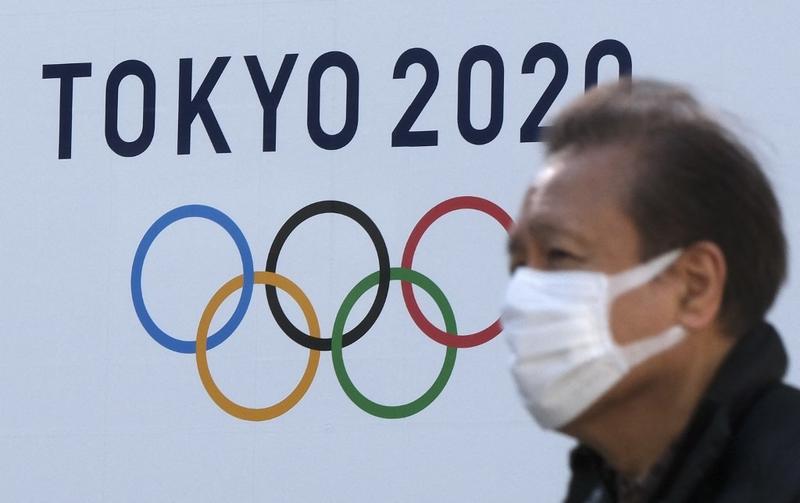 In this Feb 4, 2021 photo, a pedestrian walks past the logo of the Tokyo 2020 Olympic Games in Tokyo. (KAZUHIRO NOGI / AFP)
In this Feb 4, 2021 photo, a pedestrian walks past the logo of the Tokyo 2020 Olympic Games in Tokyo. (KAZUHIRO NOGI / AFP)
PARIS - The World Anti-Doping Agency (WADA) and the International Testing Agency (ITA) confirmed in their reports to the 137th IOC Session that a robust and efficient pre-Games anti-doping program that will allow athletes to compete in a fair and safe environment in Tokyo is being carried out.
The report from the ITA revealed that the testing assessment period started one year before the Games, taking into account a much wider pool of athletes likely to qualify
The Session, which was held by video conference, concluded on Friday as both WADA and the ITA committed that they are working closely with the IOC and the Tokyo 2020 Organizing Committee to ensure clean sport and the integrity of the Olympic Games this summer.
The report from the ITA revealed that the testing assessment period started one year before the Games, taking into account a much wider pool of athletes likely to qualify. Testing recommendations made by the ITA Pre-Games Expert Group aim to close testing gaps ahead of the Games. These recommendations, which amount to more than 26,000, have therefore been issued much earlier (six months ahead of the Games for Tokyo 2020 compared to one month for Rio 2016), and cover more sports (all 33 sports and disciplines for Tokyo compared to seven sports for Rio).
As a result of the recommendations, 2,400 tests on individual athletes and 400 tests on team sports athletes have already been completed by the International Federations (IFs) and National/Regional Anti-Doping Organisations concerned, and more than 6,000 controls are planned in the coming weeks.
ALSO READ: China formally criminalizes doping
The ITA has also implemented a global long-term storage program to store pre-Games samples in a centralized and secured facility in order to deter athletes from using prohibited substances and allow the reanalysis of samples for up to 10 years.
WADA's President, Witold Banka, told the IOC Session that the establishment of the long-term sample storage facility and program also had WADA's full support. In addition to providing assistance for the anti-doping program that will be coordinated by the ITA during the Games, WADA is also ensuring that the accredited laboratory in Tokyo will be ready for the challenge that awaits.
Banka stressed that, despite the global impact of the COVID-19 pandemic on the anti-doping system, WADA has kept full oversight of testing activities and put in place relevant guidelines to assist the anti-doping community in these difficult times.
With a primary focus on the health of athletes, WADA is strongly recommending vaccines against COVID-19. The Agency has indicated that vaccines are not known to contain any substance or method on the Prohibited List or to interfere with anti-doping analysis. It will continue to closely monitor the situation and provide timely guidance on this matter.


